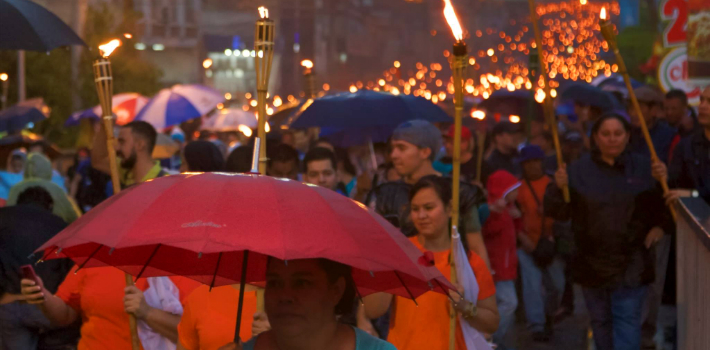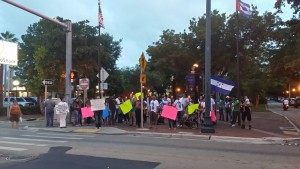
EspañolA growing number of street protests asking for justice have taken place in Honduras following a series of corruption scandals at the Honduran Institute for Social Security (IHSS). Government party members, businessmen, and public employees are all involved and local media suggests that investigations could expand to include other political parties and public figures as well.
Timeline of Crisis in Honduras
In 2014, President Juan Orlando Hernández ordered the creation of an auditory commission to investigate alleged IHSS misconduct. The commission discovered that the amount of corruption involved was much greater than initially suspected.
An audit revealed instances of theft, the trafficking of medication, overcharging for medical equipment, fake accounts, the purchase of expired or otherwise bad pharmaceuticals, and bribery, which lead to the arrest of 10 individuals, including Mario Zelaya, the IHSS director under the Porfirio Lobo administration (2010-2014).
A multi-partisan congressional commission also pointed fingers at Zelaya when he acknowledged that he committed acts of corruption as the 2013 presidential elections were approaching.
Amid the public’s clamor, in June 2015, President Hernández announced via the country’s national media network that he would do everything in his power to see that justice is served. The investigations are currently ongoing.
On June 12, businessman Shukri Kafie was arrested for allegations that his company, Dimesa, overcharged the IHSS for medications. He is currently detained at an army base, pending trial. Dimesa is one of five companies that are currently being investigated for impropriety in their dealings with IHSS, some of which are suspected of being shell companies to funnel money into the Hernández presidential campaign.
The Public Takes to the Streets
The Honduran public does not believe that the arguments presented by Hernández nor the government are enough, and have taken to the streets to demand justice and the creation of an International Commission Against Impunity, similar to the one the United Nations created in Guatemala, the CICIG.
Protests have been increasing in size, and spreading to different cities across the country, with the largest taking place in the capital city of Tegucigalpa and San Pedro Sula, where the first demonstrations took place. They have been continuous, with attendance by both citizens and politicians alike, but Hondurans perceive the unwelcomed participation of politicians as a manipulative and vindictive attempt to show off.
In response to opposition protests, the ruling party has launched its own marches in support of the government and President Hernández in different parts of the country.

Protests have transcended Honduran borders, spilling over to countries around the world including Guatemala, Spain, and the U.S. Lester Rápalo, who leads the protests in Miami on June 13 told PanAm Post that “corruption has always existed in Honduras, in all political parties and administrations, but we are tired of it, and we demand justice.”
“We want the government to install the International Commission Against Corruption, just as they did in Guatemala, and we also want to see President Hernández investigated,” added Rápalo.
Social media has played an important role in organizing the demonstrations, coined “torch marches,” that are said to continue until the government agrees to have a UN Commission lead the corruption investigations.
 Versión Español
Versión Español












